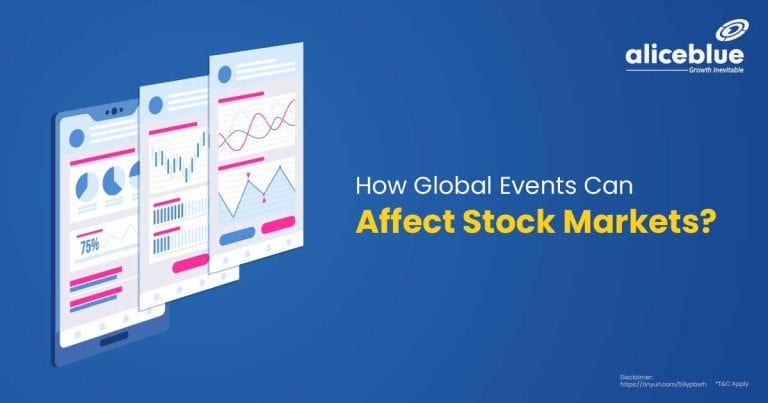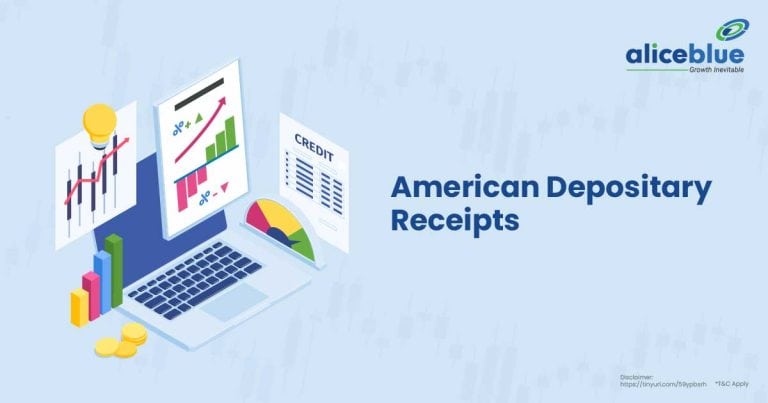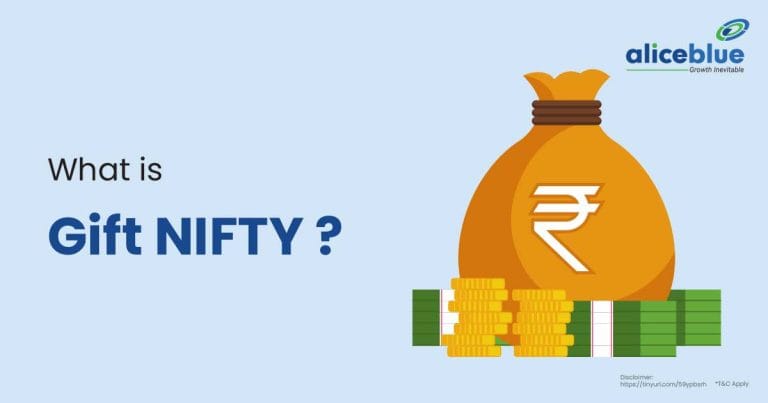The table below shows Top Performing Value Funds in 1 Year based on AUM, NAV, and Minimum SIP.
| Name | AUM Cr | NAV | Minimum SIP Rs. |
| ICICI Pru Value Discovery Fund | 48,805.97 | 499.60 | 5,000.00 |
| HSBC Value Fund | 13,357.64 | 120.24 | 100.00 |
| UTI Value Fund | 10,355.98 | 183.56 | 500.00 |
| Bandhan Sterling Value Fund | 10,241.88 | 171.57 | 100.00 |
| Tata Equity P/E Fund | 8,864.64 | 412.77 | 100.00 |
| Nippon India Value Fund | 8,559.62 | 247.01 | 5,000.00 |
| HDFC Capital Builder Value Fund | 7,607.71 | 811.29 | 5,000.00 |
| Aditya Birla SL Pure Value Fund | 6,225.78 | 148.88 | 100.00 |
| Templeton India Value Fund | 2,246.77 | 828.38 | 100.00 |
| Quantum Long Term Equity Value Fund | 1,163.55 | 129.53 | 100.00 |
Introduction to Top Performing Value Funds in 1 Year
ICICI Pru Value Discovery Fund
ICICI Pru Value Discovery Fund is a Value Fund with an AUM of ₹48,805.97 Crores, a 5-year CAGR of 28.83%, and an expense ratio of 0.99%, with a 1% exit load.
ICICI Prudential Value Discovery Direct Growth is an Equity Mutual Fund Scheme launched by ICICI Prudential Mutual Fund. This scheme was made available to investors on 12 Oct 1993. The fund’s asset allocation consists of 86.1% in Equity, 0.9% in Debt, and 13% in Cash, indicating a strong emphasis on equity investments alongside a modest cash reserve.
HSBC Value Fund
HSBC Value Fund is a Value Fund with an AUM of ₹13,357.64 Crores, a 5-year CAGR of 28.56%, and an expense ratio of 0.77%, with a 1% exit load.
HSBC Value Fund Direct Growth is an Equity Mutual Fund Scheme launched by HSBC Mutual Fund. This scheme was made available to investors on 27 May 2002. This fund features an asset allocation of 98.7% in Equity and 1.3% in Cash, reflecting a significant focus on equity with minimal cash holdings for liquidity.
UTI Value Fund
UTI Value Fund is a Value Fund with an AUM of ₹10,355.98 Crores, a 5-year CAGR of 25.42%, and an expense ratio of 1.13%, with a 1% exit load.
UTI Value Fund Direct Growth is an Equity Mutual Fund Scheme launched by UTI Mutual Fund. This scheme was made available to investors on 14 Nov 2002. The asset allocation for this fund includes 96.7% in Equity, 0.2% in Debt, and 3.1% in Cash, demonstrating a strong commitment to equity investments and limited fixed-income exposure.
Bandhan Sterling Value Fund
Bandhan Sterling Value Fund is a Value Fund with an AUM of ₹10,241.88 Crores, a 5-year CAGR of 30.02%, and an expense ratio of 0.68%, with a 1% exit load.
Bandhan Sterling Value Fund Direct Plan-Growth is an Equity Mutual Fund Scheme launched by Bandhan Mutual Fund. This scheme was made available to investors on 20 Dec 1999. This fund has an asset allocation of 95.1% in Equity and 4.9% in Cash, highlighting a predominant focus on equity while maintaining a small cash reserve.
Tata Equity P/E Fund
Tata Equity P/E Fund is a Value Fund with an AUM of ₹8,864.64 Crores, a 5-year CAGR of 25.64%, and an expense ratio of 0.80%, with a 1% exit load.
Tata Equity PE Fund Direct Growth is an Equity Mutual Fund Scheme launched by Tata Mutual Fund. This scheme was made available to investors on 30 Jun 1995. The fund’s asset allocation consists of 96.4% in Equity and 3.6% in Cash, indicating a strong preference for equity investments with minimal cash for liquidity.
Nippon India Value Fund
Nippon India Value Fund is a Value Fund with an AUM of ₹8,559.62 Crores, a 5-year CAGR of 28.59%, and an expense ratio of 1.15%, with a 1% exit load.
Nippon India Value Fund Direct Growth is an Equity Mutual Fund Scheme launched by Nippon India Mutual Fund. This scheme was made available to investors on 30 Jun 1995. The fund’s asset allocation consists of 96.6% in Equity and 3.4% in Cash, indicating a strong focus on equity investments alongside a small cash reserve.
HDFC Capital Builder Value Fund
HDFC Capital Builder Value Fund is a Value Fund with an AUM of ₹7,607.71 Crores, a 5-year CAGR of 24.03%, and an expense ratio of 0.98%, with a 1% exit load.
HDFC Capital Builder Value Fund Direct Plan-Growth is an Equity Mutual Fund Scheme launched by HDFC Mutual Fund. This scheme was made available to investors on 10 Dec 1999. This fund features an asset allocation of 98.6% in Equity and 1.4% in Cash, reflecting a significant emphasis on equity with minimal cash holdings for liquidity.
Aditya Birla SL Pure Value Fund
Aditya Birla SL Pure Value Fund is a Value Fund with an AUM of ₹6,225.78 Crores, a 5-year CAGR of 26.26%, and an expense ratio of 0.98%, with a 1% exit load.
Aditya Birla Sun Life Pure Value Direct Fund Growth is an Equity Mutual Fund Scheme launched by Aditya Birla Sun Life Mutual Fund. This scheme was made available to investors on 23 Dec 1994. The asset allocation for this fund includes 98.8% in Equity and 1.2% in Cash, showcasing a strong commitment to equity investments with very limited cash reserves.
Templeton India Value Fund
Templeton India Value Fund is a Value Fund with an AUM of ₹2,246.77 Crores, a 5-year CAGR of 29.23%, and an expense ratio of 0.83%, with a 1% exit load.
Templeton India Value Fund Direct Plan Growth is an Equity Mutual Fund Scheme launched by Franklin Templeton Mutual Fund. This scheme was made available to investors on 19 Feb 1996.
This fund has an asset allocation of 95.2% in Equity and 2.8% in Cash, highlighting a predominant focus on equity with a modest cash allocation.
Quantum Long Term Equity Value Fund
Quantum Long Term Equity Value Fund is a Value Fund with an AUM of ₹1,163.55 Crores, a 5-year CAGR of 20.47%, and an expense ratio of 1.10%, with a 2% exit load.
Quantum Long Term Equity Value Fund Direct-Growth is an Equity Mutual Fund Scheme launched by Quantum Mutual Fund. This scheme was made available to investors on 19 Sep 2005. The fund’s asset allocation consists of 86.4% in Equity, 13.4% in Debt, and no specified Cash allocation, indicating a balanced approach with a significant portion in fixed income.

What Are Value Funds?
Value funds are investment vehicles that focus on stocks perceived to be undervalued relative to their intrinsic worth. These funds aim to capitalize on market inefficiencies, seeking to generate returns by investing in companies with strong fundamentals but lower market prices.
Features Of Top Performing Value Funds in 1 Year
The main features of top-performing value funds in 1 year include a strong focus on undervalued stocks, consistent returns even in volatile markets, a disciplined investment approach, and long-term growth potential by identifying companies trading below their intrinsic value.
- Focus on Undervalued Stocks
Value funds primarily invest in companies that are currently undervalued by the market. These stocks are chosen based on financial metrics like low price-to-earnings ratios, allowing the funds to capitalize on future growth when market corrections occur.
- Consistent Performance in Volatility
Even during market volatility, top-performing value funds tend to show stability. These funds focus on companies with strong fundamentals, enabling them to weather market downturns better than growth stocks, thus providing steady returns over time.
- Disciplined Investment Approach
Value funds adhere to a disciplined, research-driven investment strategy. Fund managers thoroughly analyze financials, focusing on long-term potential over short-term gains. This methodical approach helps mitigate risks while identifying undervalued opportunities for growth.
- Long-Term Growth Potential
Value funds aim for long-term capital appreciation. By investing in stocks that are temporarily undervalued, these funds position themselves for significant gains as the market eventually recognizes the true value of the companies, leading to higher returns.
Best Performing Value Funds in 1 Year
The table below shows the Best Performing Value Funds in 1 Year based on Expense Ratio and Minimum SIP.
| Name | Expense Ratio | Minimum SIP Rs. |
| Bandhan Sterling Value Fund | 0.68 | 100.00 |
| HSBC Value Fund | 0.77 | 100.00 |
| Tata Equity P/E Fund | 0.80 | 100.00 |
| Templeton India Value Fund | 0.83 | 100.00 |
| Groww Value Fund | 0.90 | 100.00 |
| JM Value Fund | 0.91 | 250.00 |
| HDFC Capital Builder Value Fund | 0.98 | 5,000.00 |
| Aditya Birla SL Pure Value Fund | 0.98 | 100.00 |
| ICICI Pru Value Discovery Fund | 0.99 | 5,000.00 |
| Quantum Long Term Equity Value Fund | 1.10 | 100.00 |
Top Performing Value Funds in 1 Year In India
The table below shows Top Performing Value Funds in 1 Year In India based on CAGR 3Y and Minimum SIP.
| Name | CAGR 3Y % | Minimum SIP Rs. |
| JM Value Fund | 33.32 | 250.00 |
| Templeton India Value Fund | 29.22 | 100.00 |
| HSBC Value Fund | 28.34 | 100.00 |
| ICICI Pru Value Discovery Fund | 28.05 | 5,000.00 |
| Tata Equity P/E Fund | 27.66 | 100.00 |
| Nippon India Value Fund | 27.51 | 5,000.00 |
| Bandhan Sterling Value Fund | 26.92 | 100.00 |
| Aditya Birla SL Pure Value Fund | 26.54 | 100.00 |
| HDFC Capital Builder Value Fund | 23.36 | 5,000.00 |
| Union Value Fund | 23.31 | 500.00 |
Top Performing Value Funds in 1 Year List
The table below shows Top Performing Value Funds in 1 Year List based on Exit Load and AMC.
| Name | AMC | Exit Load % |
| JM Value Fund | JM Financial Asset Management Private Limited | 1.00 |
| Templeton India Value Fund | Franklin Templeton Asset Management (India) Private Limited | 1.00 |
| HSBC Value Fund | HSBC Global Asset Management (India) Private Limited | 1.00 |
| ICICI Pru Value Discovery Fund | ICICI Prudential Asset Management Company Limited | 1.00 |
| Tata Equity P/E Fund | Tata Asset Management Private Limited | 1.00 |
| Nippon India Value Fund | Nippon Life India Asset Management Limited | 1.00 |
| Bandhan Sterling Value Fund | Bandhan AMC Limited | 1.00 |
| Aditya Birla SL Pure Value Fund | Aditya Birla Sun Life AMC Limited | 1.00 |
| HDFC Capital Builder Value Fund | HDFC Asset Management Company Limited | 1.00 |
| Union Value Fund | Union Asset Management Company Pvt. Ltd. | 1.00 |
Factors To Consider When Investing In Top Performing Value Funds in 1 Year
The main factors to consider when investing in top-performing value funds include the fund’s performance history, expense ratio, management team, and investment strategy. Understanding these aspects helps investors select funds that align with their financial goals and risk tolerance.
- Performance History
Reviewing a fund’s historical performance provides insight into its ability to generate returns over different market conditions. Consistent outperformance compared to benchmarks indicates effective management and a solid investment strategy, enhancing confidence in future performance.
- Expense Ratio
The expense ratio reflects the fund’s operating costs and can significantly impact overall returns. Lower expense ratios mean more of your investment goes toward generating returns, making it essential to consider this factor when evaluating value funds.
- Management Team
A skilled and experienced management team plays a crucial role in a fund’s success. Assessing their track record and investment philosophy helps investors determine if the team can effectively identify and capitalize on undervalued stocks.
- Investment Strategy
Understanding the fund’s investment strategy is vital. Each value fund may have different criteria for selecting stocks, such as market capitalization or sector focus. Aligning the strategy with your investment objectives ensures compatibility with your overall portfolio.
How To Invest In Top Performing Value Funds in 1 Year?
Investing in top-performing value funds involves researching and selecting funds based on performance metrics and management quality. Open an account with Alice Blue, choose your desired value funds, and allocate your investment accordingly, monitoring performance regularly.
Advantages Of Investing In Top Performing Value Funds in 1 Year?
The main advantages of investing in top-performing value funds include the potential for capital appreciation, risk diversification, and access to undervalued stocks. These benefits can enhance long-term investment returns while reducing exposure to market volatility.
- Potential for Capital Appreciation
Value funds often invest in stocks priced below their intrinsic value. As the market recognizes their true worth, these stocks can appreciate significantly, providing substantial returns for investors who remain patient through market fluctuations.
- Risk Diversification
By investing in a diversified portfolio of undervalued stocks across various sectors, value funds help reduce risks associated with individual stocks. This diversification balances potential losses from underperforming investments, contributing to a more stable investment experience.
- Access to Undervalued Stocks
Value funds focus on identifying and investing in undervalued companies. This strategy allows investors to benefit from potential price corrections and capitalize on opportunities that may be overlooked by the broader market.
- Long-Term Growth Potential
Value investing generally emphasizes a long-term perspective, allowing investors to ride out short-term volatility. This approach aligns well with fundamental analysis, enhancing the likelihood of achieving substantial growth over time.
Risks Of Investing In Top Performing Value Funds in 1 Year?
The main risks of investing in top-performing value funds include market risk, value traps, liquidity risk, and management risk. Understanding these risks helps investors make informed decisions and manage their portfolios effectively.
- Market Risk
Value funds are not immune to broader market fluctuations. Economic downturns can negatively affect stock prices, potentially leading to losses despite the underlying fundamentals of the invested companies, emphasizing the importance of market awareness.
- Value Traps
Sometimes, stocks appear undervalued but remain stagnant or decline further due to underlying issues. These “value traps” can mislead investors, making it essential to conduct thorough research before investing in value funds.
- Liquidity Risk
Some value funds may invest in less liquid stocks, making it difficult to buy or sell shares without affecting their price. This risk can pose challenges during market downturns when liquidity may be scarce.
- Management Risk
The performance of value funds heavily relies on the management team’s decisions. Poor stock selection or changes in investment strategy can adversely impact returns, highlighting the importance of assessing the management team’s track record.
Importance of Value Funds
Value funds play a critical role in diversifying an investment portfolio. By focusing on undervalued stocks, these funds can provide opportunities for growth while mitigating risks associated with overvalued market segments. They offer a balanced approach to long-term investing.
Additionally, value funds often emphasize fundamental analysis, encouraging investors to consider a company’s intrinsic value rather than market hype. This approach promotes disciplined investing and can lead to superior returns, particularly in volatile market conditions where growth stocks may falter.
How Long to Stay Invested in Value Funds?
Staying invested in value funds typically requires a long-term perspective. Given the nature of value investing, it may take time for undervalued stocks to realize their true potential. Investors should be prepared to hold their investments for several years.
Market fluctuations can create temporary setbacks, but patience is crucial. By maintaining a long-term outlook, investors can benefit from the eventual price corrections and appreciation of undervalued stocks, aligning their investment strategies with fundamental analysis principles.
Tax Implications of Investing in Value Funds
Investing in value funds can have various tax implications, particularly concerning capital gains and dividend distributions. Long-term capital gains, generated from investments held over a year, are generally taxed at lower rates compared to short-term gains, incentivizing long-term holding.
Additionally, dividends received from value funds may be subject to taxation based on individual income tax rates. Investors should consider these factors when evaluating their overall tax liability and consult with a tax professional for personalized advice.
Future of Value Funds
The future of value funds looks promising, especially as market conditions fluctuate and investor sentiment shifts. Value investing principles continue to resonate, attracting those seeking to capitalize on market inefficiencies and find opportunities in undervalued stocks.
Moreover, as more investors become aware of the importance of diversification and fundamental analysis, value funds may see increased demand. This trend suggests that value funds will remain a relevant and essential component of investment portfolios moving forward.

Top Performing Value Funds in 1 Year FAQs
Value funds are investment vehicles that focus on stocks perceived to be undervalued compared to their intrinsic value, aiming to achieve long-term capital appreciation through careful selection of fundamentally strong companies.
Top Performing Value Funds in 1 Year #1: ICICI Pru Value Discovery Fund
Top Performing Value Funds in 1 Year #2: HSBC Value Fund
Top Performing Value Funds in 1 Year #3: UTI Value Fund
Top Performing Value Funds in 1 Year #4: Bandhan Sterling Value Fund
Top Performing Value Funds in 1 Year #5: Tata Equity P/E Fund
Top Performing Value Funds in 1 Year based on AUM.
The best-performing value funds in 1 year based on expense ratio include Bandhan Sterling Value Fund, HSBC Value Fund, Tata Equity P/E Fund, Templeton India Value Fund, and Groww Value Fund, offering competitive returns for investors.
Top 5 Performing Value Funds in 1 Year #1: JM Value Fund
Top 5 Performing Value Funds in 1 Year #2: Templeton India Value Fund
Top 5 Performing Value Funds in 1 Year #3: HSBC Value Fund
Top 5 Performing Value Funds in 1 Year #4: ICICI Pru Value Discovery Fund
Top 5 Performing Value Funds in 1 Year #5: Tata Equity P/E Fund
Top 5 Performing Value Funds in 1 Year based on 3Y CAGR
Investing in top-performing value funds can be beneficial, as they often provide exposure to undervalued stocks. However, market conditions and individual financial goals should always be considered before investing.
Yes, you can buy top-performing value funds at any time. Researching their performance, management, and strategy is crucial to ensure they align with your investment objectives and risk tolerance.
We hope you’re clear on the topic, but there’s more to explore in stocks, commodities, mutual funds, and related areas. Here are important topics to learn about.
Disclaimer: The above article is written for educational purposes, and the companies’ data mentioned in the article may change with respect to time The securities quoted are exemplary and are not recommendatory.








